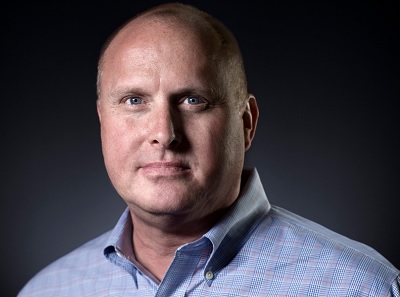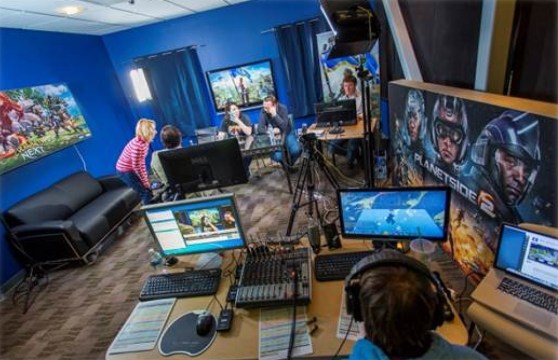When Sony Online Entertainment wanted to tout H1Z1, an upcoming game where thousands of players can gather online as humans holding out against the zombie apocalypse, it didn’t take out an ad in a slick magazine or run a TV commercial. Rather, John Smedley, president of SOE, a division of Sony and maker of games like EverQuest, had his team promote the game on both Reddit and Twitch.
Welcome to the new age of game marketing. By going direct to player broadcasters on Twitch and online commenters on Reddit, Smedley is going where the audience has moved. He wants to reach gamers directly with an unfiltered description of exactly what gamers will get with his game. And once they’re hooked, they will hopefully become the game’s best evangelists. Smedley himself is communicating directly with the fans.
That’s the message that Smedley will deliver at the Game Marketing Summit in San Francisco on Wednesday, where a bunch of game marketers will gather to discuss the changing landscape of their trade. We caught up with Smedley on Friday for interview about marketing games. Here’s an edited transcript.
GamesBeat: I wanted to start with your view on how game marketing has changed — if you remember anything from marketing the original EverQuest, to now marketing your games through things like Twitch or Reddit. What has the change been like?
John Smedley: The single largest change has been the fact that we now have direct-to-consumer channels like Twitch and Reddit. We have large-scale communities we can talk to directly, without needing to “market” to them. With our most recent game, H1Z1, a few feet from me some guys are setting up a stream for it. We’re not spending any money on marketing. We’re spending all our efforts on PR and direct-to-consumer information. We’re bypassing the entire marketing step.
I don’t believe consumers really want to be marketed to. What they want is access to the people making the game.
GamesBeat: What does that mean? What are some of the consequences of this shift? How long did it take you to come to this kind of change?
Smedley: I’d say it’s 99 percent positive. Customers love the interaction. They like talking to the people who are making these things. It also means that your players are getting to see things very raw, though. You have to be willing to let them see some of your faults as well. It makes it feel more real.
GamesBeat: Is the period during which you’re “marketing” stretching out for a longer amount of time? You’re talking to the customers fairly early on and fairly regularly over a long time.
Smedley: Right. That’s our entire marketing strategy. If you look back to when EverQuest launched, back in 1999, I can remember putting ads in magazines back then. Now, my God, what’s a magazine again? It’s an amazing change here. It’s even gone past television. Now, if you get a video to go viral on YouTube, you’re golden.
What I always go back to is, it’s players who make things go viral. Depending on how you look at it, our job hasn’t changed even a little bit. We are there to make great games. It’s just that now, people get to make decisions about them earlier, and in different ways.
GamesBeat: You mentioned PR as well. How do you view the media? There are folks who are celebrities in their own right. Geoff Keighley of SpikeTV just did a lot of promotion with the launch of Titanfall. On the other end, there’s also this mass of other people writing blog posts these days.
Smedley: I’m floored by the number of — I can’t really call them YouTube celebrities, because Twitch is becoming just as important to gaming. But these streamers are really changing the landscape. Myself, I follow a lot of them. The way I do it, I think, is the way a lot of people do it. They follow people around games they’re interested in. These little communities start off with nothing more than players who love a game and want to tell people about it, and they grow into millions and millions of people. I love that.
GamesBeat: How much of this can you dream up in advance? How do you think about making something that surrounds a game and becomes contagious?
Smedley: The first thing is to give players the tools. We were the first company to integrate with Twitch in our APIs. We saw that buzz and we wanted to jump right on. We’re glad we did. They’re great partners. That’s the most important thing. If you want to see your game virally spread, you have to give players the tools to do it. We spent a lot of effort on doing that.
GamesBeat: Is there a very different approach across different platforms, whether it’s console, PC, mobile, or social?
Smedley: Consoles are growing considerably. PlayStation 4 made a big decision to put Twitch in there. What’s great about that is, it’s something that anyone can do. They’ve made it so easy. That ease of use is going to keep growing.
I can’t wait until we see it on things like Apple TV or the Amazon Fire TV. If I’m eating dinner and I’m lonely, the first thing I do is fire up my iPad and throw it over to Apple TV. The tools for enabling players are getting better every day.
GamesBeat: Some of this means you’re also giving up some control. You used to have a very controlled message and a controlled game. How do you feel about that?
Smedley: Anyone who knows me knows I love this. I’m a big believer in chaos when it comes to conversations with customers. Here’s what I mean by that. I want our customers to feel like, if they were right next door to us, they could knock on the door and say, “What’s going on with this game?” We lose control, but in the best way possible. One way or another, the customers are going to decide whether they like this game very quickly. For us, getting that instant feedback, there’s nothing more powerful. It’s a direct connection with the people who pay our bills.
GamesBeat: The tough thing on mobile, with this democratization, is that the channels aren’t established or guaranteed. You have to figure out distribution. You have to go acquire users. Sometimes the cost of acquiring those users through more traditional ads is going to cost more than the user is likely to bring in.
Smedley: The beautiful thing about virality and letting users talk directly to us is that it’s the best kind of marketing you could want. It’s authentic. For mobile users, we only have to overcome a few minor things. I think this is going to work for them just as well. It’s inevitable.




